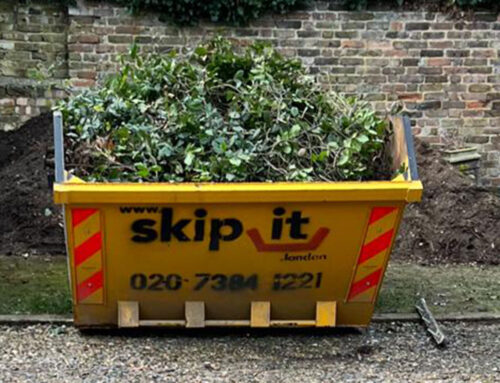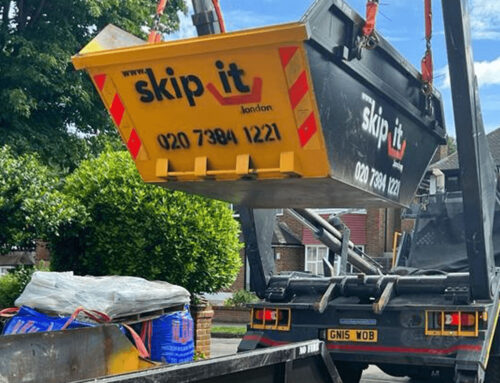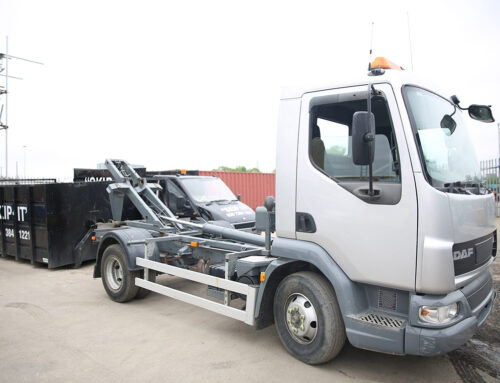Introduction:
In an era where businesses are increasingly scrutinised for their environmental footprint, the imperative to reduce waste has never been more critical. Economic pressures coupled with environmental responsibility drive organisations to seek efficient waste management solutions. Skip hire, offered by companies like Surbiton Skip Hire, presents a viable avenue not only for managing waste but also for contributing to sustainability goals. This approach aligns with both economic and ecological imperatives, providing a robust framework for businesses to manage their waste more effectively.
1. Advantages of Skip Hire for Businesses
Cost-Effective Waste Management
One of the main advantages of using skip hire services is the cost efficiency they offer. By streamlining waste collection and disposal processes, businesses can significantly reduce overheads. Surbiton Skip Hire offers a wide selection of skip sizes and flexible hire plans, ensuring businesses only pay for what they need. This tailored approach allows for better budget management and reduced operational costs.
Environmental Impact Reduction
Skip hire services help businesses reduce their carbon footprint by promoting responsible waste disposal. Surbiton Skip Hire, for example, prioritises recycling and diverts waste from landfills wherever possible. This commitment to sustainable waste management supports environmental protection efforts and helps businesses meet regulatory requirements and growing consumer expectations around eco-consciousness.
2. Strategic Planning: Maximise Your Skip Hire Investment
Conduct a Commercial Waste Audit
Effective skip hire starts with a proper understanding of your waste output. Performing a business waste audit identifies the types and volumes of waste generated, enabling you to choose the most suitable waste disposal methods. This step ensures your skip hire strategy is cost-effective, compliant, and tailored to your operational needs.
Select the Right Skip Size
Choosing the correct skip size is essential for both cost and compliance. Overfilling skips can lead to fines and disrupt your waste disposal process. With a range of skip sizes available, Surbiton Skip Hire helps businesses estimate their waste volume and select the most appropriate size for the job. This ensures smooth operations and avoids unnecessary expenses.
3. Efficient Skip Usage and Logistics
Optimise Delivery and Pickup Schedules
Strategic scheduling of skip delivery and collection enhances efficiency and reduces downtime. Surbiton Skip Hire provides flexible skip hire services, allowing businesses to coordinate waste pickups in line with their project timelines. This ensures seamless waste disposal without interrupting workflow or causing delays.
4. Improve Recycling Through Waste Segregation
Separate Recyclables at Source
Waste segregation at the source plays a crucial role in improving recycling rates and reducing disposal costs. By separating recyclable materials from general waste, businesses can cut down on landfill use and benefit from lower recycling fees. Surbiton Skip Hire encourages waste sorting, helping clients comply with environmental regulations and improve overall waste handling efficiency.
5. Financial Strategies for Cost Reduction
Negotiate Competitive Skip Hire Rates
Negotiating terms with your skip hire provider can result in considerable savings. Whether it’s securing volume discounts or arranging long-term contracts, businesses can often reduce costs by building ongoing partnerships. Surbiton Skip Hire works closely with commercial clients to offer tailored packages and competitive pricing for long-term or large-scale waste management solutions.
6. Embrace Waste-to-Energy Solutions
Convert Waste into Renewable Energy
A forward-thinking waste solution is waste-to-energy, where non-recyclable waste is transformed into energy. This not only reduces landfill dependency but also contributes to green energy production. Surbiton Skip Hire is actively exploring partnerships with waste-to-energy facilities, reinforcing their commitment to sustainable business waste solutions.
Looking Ahead: The Future of Business Waste Management
The landscape of business waste management is evolving, with emerging trends in waste reduction, technological innovations, and shifts in policy playing pivotal roles. Businesses are increasingly adopting sustainable practices, integrating waste reduction into their corporate values, and collaborating with the community and industry to foster a culture of sustainability. As these trends continue to influence waste management strategies, services like skip-hire remain at the forefront of offering practical and sustainable solutions for businesses.
Summary
In conclusion, reducing business waste costs requires a multifaceted approach, incorporating strategic planning, financial savvy, and innovative technologies. Skip hire, exemplified by Surbiton Skip Hire, plays a crucial role in achieving sustainable business practices, offering both economic and environmental benefits. By embracing skip-hire as part of a broader waste-to-energy solution, businesses can not only manage their waste more effectively but also contribute to a more sustainable future.




